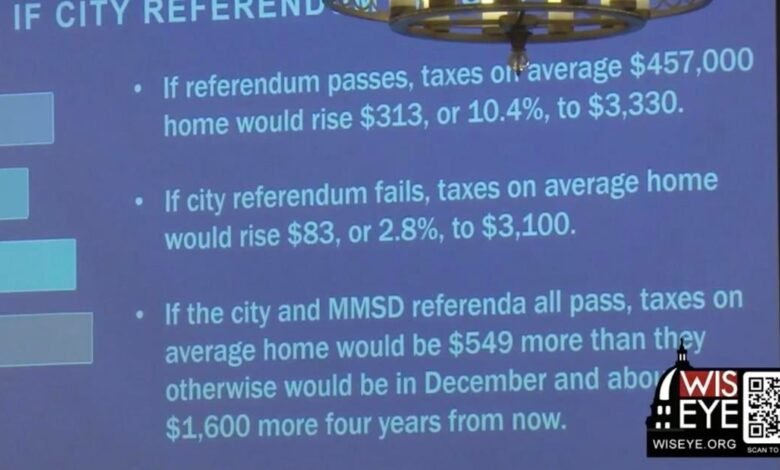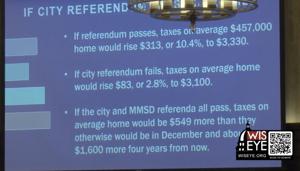Madison referenda could lead to $1,600 tax increase on average $457K home | Wisconsin


(The Center Square) – Madison residents are set for hefty property tax increases if a group of referenda on the Nov. 5 ballot pass.
If all three pass, Madison taxpayers with an average home valued at $457,000 would owe $549 in addition taxes in the first year ramping up to $1,600 in additional taxes by the fourth year.
The referenda come due to limits set by state lawmakers on increases in local levies, including enrollment-based caps for schools and limits based on net new construction for municipalities.
A new Wisconsin Policy Forum report broke down the $22 million Madison city referendum, with information on how Madison will attempt to institute an unprecedented infrastructure special charge if the referendum fails.
Madison Metropolitan schools, meanwhile, are asking for a combined $600 million in two referenda for operational expenses and school renovations and infrastructure into the future despite a $23.4 million funding increase in state aid this year.
MMSD Superintendent Joe Gothard said the additional state aid will result in a reduction in the first-year property tax increase through the referenda from $317 in the first year on a $457,000 home to $40.
Gothard said he is unsure, like taxpayers, on what state aid will look like in the 2025-26 fiscal year and beyond.
Both Madison and the schools say that they covered for pay and benefit increases for employees as inflation rose faster than levy limits with one-time pandemic funds through the American Rescue Plan and reserves but are looking for the referenda to covering the recurring costs of those expenses.
“If you’re allowed to account in your budget for both inflation and growth, you can balance the budget,” Madison Mayor Satya Rhodes-Conway said during a panel discussion Thursday on the referenda. “Now that we’re allowed, at least technically, to account for growth … it’s basically impossible. We don’t have a choice about inflation. We don’t have a choice about how much our health care costs go up or how much it costs to buy materials.”
Rhodes-Conway said that the budget issues leading to Madison’s referendum is a state levy limit issue that is up to the state to fix. She added that Madison has a six-year budget plan in place where the city would not go back to the public for another referendum if this year’s plan passed.
Gothard said that one issue with his district’s funding is that the state does not cover funding the Individual Disabilities Education Act, which Gothard said means the federal government should cover 40% and states should cover 60% of the program.
Gothard said the district will spend $66 million of its general fund this year to cover IDEA costs the state does not cover.
Source link

